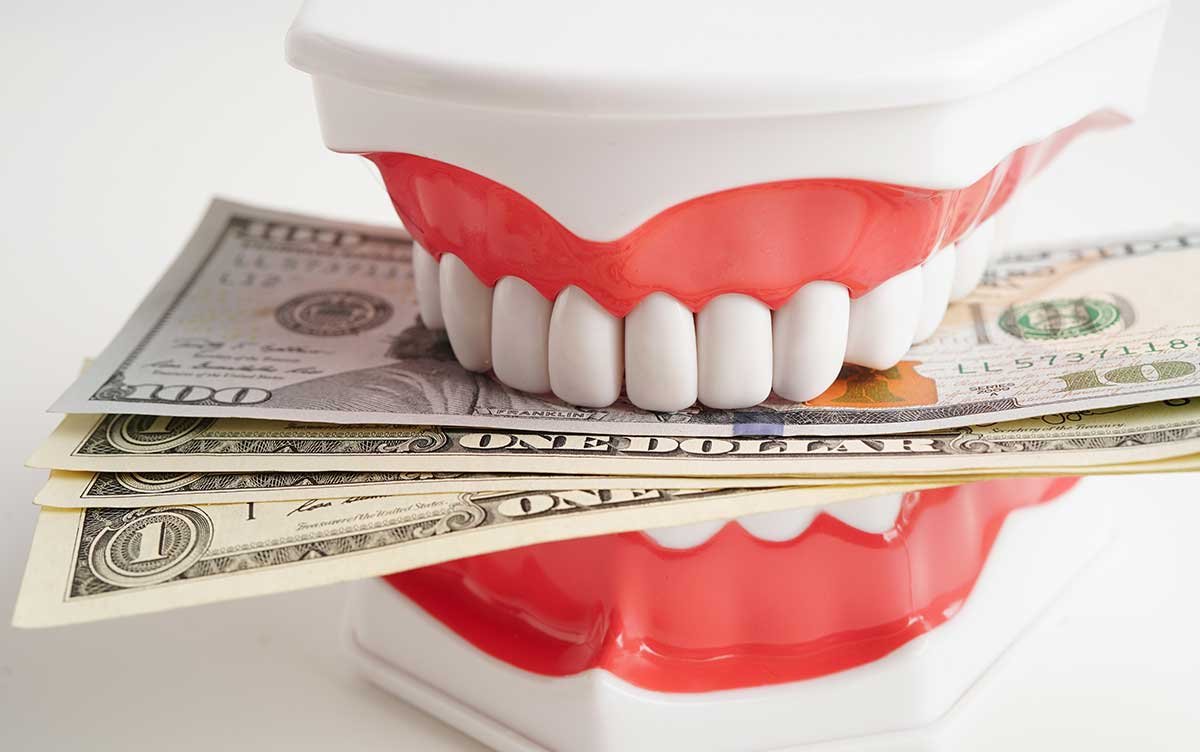Is there a downside to teeth whitening? Many people seek teeth whitening to achieve a brighter, more confident smile. However, it’s important to know that this cosmetic procedure is not without its risks. From tooth sensitivity to gum irritation, there are potential downsides to teeth whitening that patients need to consider before undergoing treatment. In this article, we’ll explore the possible risks and side effects of teeth whitening and how you can minimize them for a safe and effective treatment.
Potential Drawbacks of Teeth Whitening for Dental Implant Patients
There are potential drawbacks associated with teeth whitening for dental implant patients. One of the main concerns is that whitening agents can cause irritation or sensitivity to the gums and teeth, which could lead to complications with the implant site. Additionally, some whitening products may contain abrasive chemicals that can damage the surface of the implant or the restoration. It is also important to note that teeth whitening will not change the color of dental restorations, so patients with implants may notice a difference in shade between their natural teeth and the implant. Overall, it is important for dental implant patients to consult with their dentist before undergoing any teeth whitening procedures to ensure that the treatment will not have any negative effects on their oral health.
What are the drawbacks of teeth whitening?
Teeth whitening can have some drawbacks or potential side effects that you should be aware of. These include:
1. Tooth sensitivity: While teeth whitening is generally safe, some people may experience increased tooth sensitivity or gum irritation afterward. This usually resolves on its own, but in rare cases, it can persist longer.
2. Gum irritation: The bleaching agents used in teeth whitening can irritate the gums and cause them to become red, sore, or even bleed. This is usually temporary, but if it persists, you should see a dentist.
3. Uneven results: Teeth whitening may not produce uniform results, and some teeth may whiten more than others. This can be due to differences in the thickness and color of the enamel or the presence of existing dental work.
4. Temporary results: Teeth whitening is not a permanent solution, and the results will fade over time, especially if you continue to consume staining foods and drinks or smoke.
5. Damage to existing dental work: Teeth whitening can also damage existing dental work like fillings, crowns, or bridges, causing them to look mismatched or discolored.
It’s important to discuss any concerns with your dentist before pursuing teeth whitening, especially if you have existing dental work or a history of tooth sensitivity.
Is there any long-term dental damage caused by teeth whitening?
Teeth whitening is a popular cosmetic dental procedure that can result in a brighter, whiter smile. However, some people may wonder about the potential long-term effects of teeth whitening on their dental implants. While teeth whitening is generally considered safe and effective, there are some risks associated with the procedure.
One of the main concerns with teeth whitening is that it can cause sensitivity and irritation to the teeth and gums. This is particularly true if the whitening solution is applied too frequently or left on for too long. Some people may also experience temporary tooth sensitivity or gum irritation as a result of the procedure.
Another potential concern with teeth whitening is that it can cause damage to the enamel of the teeth over time. Enamel is the protective outer layer of the teeth that helps to prevent decay and damage. If the enamel is worn away or damaged, it can make the teeth more susceptible to decay and other dental problems.
Despite these potential risks, many people still choose to undergo teeth whitening because of the significant benefits it can provide. If you are considering teeth whitening and have dental implants, it is important to talk to your dentist about any concerns you may have and to follow their recommendations for safe and effective treatment. With proper care and attention, you can enjoy a bright, healthy smile for years to come.
Do you really need to whiten your teeth?
While whitening your teeth is not essential for getting dental implants, it can help to improve the overall appearance of your smile. If you’re planning to invest in dental implants, it makes sense to want to get the most out of your investment. Whitening your teeth beforehand can give you a brighter and more youthful-looking smile and may even boost your confidence. Additionally, if you’re replacing only some of your teeth with implants, it’s worth considering whether you want the color of your restored teeth to match your natural teeth or your newly whitened ones. Ultimately, the decision to whiten your teeth before getting dental implants is a personal one, but it’s worth discussing with your dentist to find out if it’s right for you.
Is it possible for teeth whitening to go wrong?
Yes, teeth whitening can go wrong. While it is a safe and effective way to improve the appearance of your teeth, there are risks associated with the procedure. If done incorrectly or too frequently, teeth whitening can cause damage to the enamel on your teeth, leading to increased sensitivity, tooth decay, and even tooth loss. It’s important to consult with a dental professional to determine whether teeth whitening is right for you, and to ensure that the procedure is performed safely and effectively. Additionally, it’s important to follow any aftercare instructions provided by your dentist to maintain the results of your teeth whitening treatment and protect your dental implants.
Frequent Questions
Can teeth whitening affect the implant stability?
Teeth whitening does not affect the stability of implants. Dental implants are made of titanium, which is a biocompatible material that fuses with the jawbone to provide a stable foundation for the replacement tooth. Teeth whitening products and procedures work to lighten the color of natural teeth by removing stains or bleaching the enamel. As such, they do not have any effect on the titanium implant itself. However, it is important to note that if you have both natural teeth and dental implants, whitening treatments can cause uneven coloration between your natural teeth and the replacement teeth on the implants. It is recommended to whiten your teeth before getting dental implants so that your new teeth can be matched to your desired shade. Additionally, it is important to consult with your dentist before undergoing any teeth whitening treatment to ensure that it is safe and appropriate for your specific case.
Is teeth whitening safe for individuals with dental implants?
Teeth whitening is generally safe for individuals with dental implants, but it is important to consult with your dentist first. If the implant is made of porcelain or ceramic, which most are, it will not be affected by the whitening treatment. However, if there is a natural tooth adjacent to the implant, the whitening agent may cause uneven coloration between the natural tooth and the implant crown. This can be addressed with additional cosmetic procedures such as replacing the implant crown or bonding the natural tooth to match the new shade. In some cases, your dentist may recommend an alternative whitening method such as laser whitening or at-home trays that minimize the chance of discoloration on adjacent teeth.
Are there any long-term effects of teeth whitening on dental implants?
Teeth whitening treatments on dental implants may not have any long-term effects. Dental implants are made of materials such as titanium, which is highly resistant to staining and discoloration. However, the dental implant’s crown or abutment may be made of materials that can be affected by teeth whitening agents.
If a dental implant’s crown or abutment is made of porcelain, teeth whitening treatments may weaken its surface layer over time. This can lead to the exposure of the underlying metal, which can give the implant an unappealing appearance. Therefore, it is recommended to consult with your dentist on the best approach when considering teeth whitening for dental implants.
In conclusion, teeth whitening can be a safe and effective way to enhance the appearance of your smile. However, it is important to carefully consider the potential risks and side effects before undergoing any treatment. While temporary sensitivity and gum irritation are common, long-term use of whitening products or excessive use can damage tooth enamel and increase the risk of dental implants failure. Therefore, it is recommended to consult with a dental professional who can evaluate your specific situation and provide personalized recommendations for achieving a healthy and beautiful smile.



